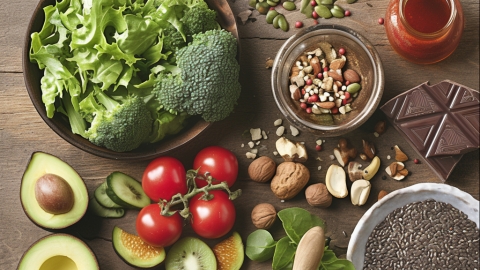What should one eat for meals with chronic appendicitis?
Patients with chronic appendicitis should eat light, easily digestible staple foods, low-fat high-quality protein sources, fiber-rich vegetables, mild fruits, and soft, easily absorbed soups and broths. Proper dietary adjustments can help reduce the burden on the intestines. If symptoms of acute flare-ups such as worsening abdominal pain or fever occur, immediate medical attention at a general surgery department is necessary.

1. Light and easily digestible staple foods: such as millet porridge, soft noodles, steamed buns, fermented rice cakes, and mixed grain porridge. These foods are soft in texture and do not place excessive digestive strain on the intestines. They provide basic energy for the body and prevent irritation to the appendix caused by hard-to-digest foods, thereby reducing discomfort.
2. Low-fat, high-quality protein sources: including steamed fish, skinless chicken breast, tofu, egg custard, and low-fat milk. Protein is essential for maintaining bodily functions and immune health. The low-fat nature of these foods reduces intestinal digestive load, supports tissue repair, and helps prevent intestinal motility disorders triggered by high-fat foods.
3. Fiber-rich vegetables: such as winter melon, pumpkin, spinach, broccoli, and carrots. These should be cooked until soft. Dietary fiber promotes intestinal motility and prevents constipation, reducing the time fecal matter remains in the intestines. This helps avoid acute appendicitis episodes triggered by intestinal obstruction or fecal stones.
4. Mild fruits: such as apples, bananas, papayas, and grapes. Choose ripe, soft varieties, which can be eaten raw or steamed. These fruits help replenish vitamins and fluids without irritating the intestinal mucosa like overly sour or cold fruits, thus maintaining a stable intestinal environment.
5. Soft, easily absorbed soups and broths: such as vegetable soup, de-greased chicken soup, mushroom soup, and egg drop soup. These soups are rich in water, helping maintain hydration, while their nutrients are easily absorbed. They also reduce chewing and digestive effort, making them suitable for daily consumption by patients with chronic appendicitis.
Daily care should include maintaining regular meal times, avoiding overeating or prolonged hunger, refraining from intense physical activity immediately after meals, managing emotional well-being to reduce stress, following medical advice for regular follow-up visits, and closely monitoring any changes in symptoms related to the appendix.




